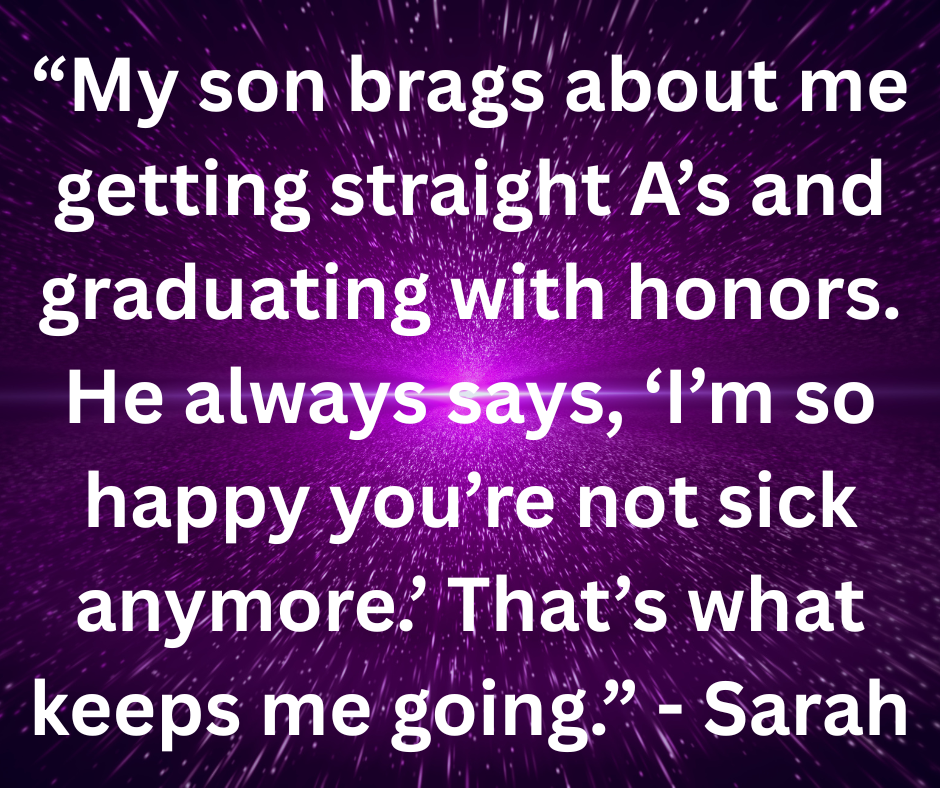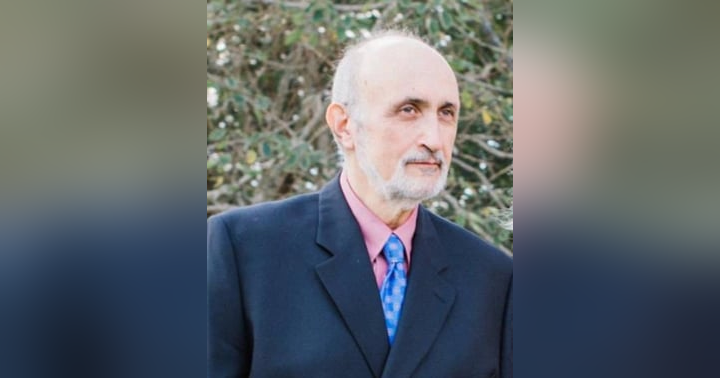
Welcome to a deeper exploration of a story that touched us all on the podcast. In this post, we're expanding on the powerful narrative shared by Sarah in our recent episode, Podathon For Recovery: Sarah’s Road to Recovery. Sarah's journey, from the early stages of opioid use to finding lasting sobriety and purpose in recovery, is a testament to the strength of the human spirit and the effectiveness of treatment and support. This post aims to provide a more detailed look into the challenges she faced, the pivotal moments that shaped her recovery, and the strategies she employed to build a fulfilling, sober life. We hope that by sharing Sarah’s experiences, we can offer hope and valuable insights to anyone struggling with addiction, as well as their families and loved ones.
Sarah's Story - A Beacon of Hope
Sarah's story is one of resilience, transformation, and ultimately, hope. Her journey through the depths of opioid addiction and her subsequent rise to become a recovery professional is an inspiration to many. From her first encounter with opioids in her early twenties to navigating the complexities of pregnancy while on methadone, Sarah's path has been filled with obstacles. Yet, through determination and the support of various resources, she found her way to long-term sobriety and a career dedicated to helping others. Her narrative serves as a reminder that recovery is possible, even from the most challenging circumstances. Her willingness to share her story provides a much-needed beacon of hope for those still struggling, proving that a life of purpose and fulfillment is attainable.
Sarah's Early Opioid Use and Rapid Descent
Sarah's experience with opioids began in her early twenties, a time when many young adults are navigating new experiences and forging their identities. Unfortunately, for Sarah, this period marked the beginning of a difficult and destructive path. Like many others who fall into the trap of addiction, her initial exposure was seemingly innocuous, perhaps a prescription painkiller for an injury or surgery. However, the highly addictive nature of opioids quickly took hold, leading to a rapid escalation in use. The sense of relief and euphoria that opioids provided masked the underlying problems and anxieties, creating a vicious cycle of dependence. Within a short period, Sarah found herself needing more and more of the drug to achieve the same effect, a clear indication of tolerance. This rapid descent into addiction highlights the insidious nature of opioids and the vulnerability of young individuals to their addictive properties. Her story underscores the importance of early intervention and education about the risks associated with opioid use.
Pregnancy on Methadone: Battling Stigma and Embracing MAT
One of the most challenging periods in Sarah's journey was her pregnancy while on methadone, a medication-assisted treatment (MAT) used to manage opioid dependence. This situation presented her with a unique set of obstacles, including societal stigma, medical complexities, and personal guilt. Methadone, while a safe and effective treatment for opioid use disorder during pregnancy, is often misunderstood and stigmatized. Many people incorrectly believe that it is simply replacing one addiction with another. Sarah faced judgment from family, friends, and even healthcare professionals who lacked a proper understanding of MAT. Despite the negativity, Sarah persevered, recognizing that methadone was crucial for maintaining her sobriety and ensuring a healthy pregnancy. She embraced the treatment, educated herself about its benefits, and advocated for her and her baby's well-being. Her experience highlights the importance of evidence-based treatment for pregnant women with opioid use disorder and the need to combat the stigma surrounding MAT. Sarah's courage in navigating this challenging situation is a testament to her commitment to recovery and motherhood.
The Dark Years: IV Use, Legal Consequences, and Decline
As Sarah's addiction progressed, she faced increasingly dire consequences. Her opioid use escalated to intravenous (IV) drug use, a particularly dangerous method of administration that carries significant health risks, including infections like HIV and hepatitis. This period was marked by a visible decline in her physical and mental health. She struggled to maintain basic hygiene, and her appearance deteriorated. Her relationships with family and friends became strained as she prioritized her addiction over everything else. Sarah also encountered legal problems as a result of her drug use, including arrests and potential jail time. These legal consequences further compounded her challenges, creating a cycle of despair and hopelessness. The dark years of Sarah's addiction underscore the devastating impact of substance use disorder on individuals, families, and communities. It illustrates the urgent need for comprehensive treatment and support services to help people break free from the grip of addiction and rebuild their lives.
Turning Point: Jail, Drug Court, and Judge-Led Accountability
For Sarah, a turning point came in the form of jail time and subsequent entry into drug court, a specialized court program that provides individuals with substance use disorder the opportunity to receive treatment and supervision in lieu of traditional incarceration. The structure and accountability provided by drug court, particularly the judge-led accountability, were instrumental in Sarah's recovery. The judge took a personal interest in her case, providing both support and consequences for her actions. This combination of compassion and accountability helped Sarah to take responsibility for her choices and commit to the recovery process. Drug court offered her access to therapy, drug testing, and other resources that were essential for her success. The program also fostered a sense of community and support among participants, creating a safe space for them to share their struggles and celebrate their achievements. Sarah's experience highlights the effectiveness of drug courts in addressing substance use disorder and reducing recidivism. It underscores the importance of providing individuals with opportunities for treatment and rehabilitation rather than simply punishing them for their addiction.
Long-Term Sobriety and the COVID Relapse
After successfully completing drug court, Sarah achieved long-term sobriety from opiates and cocaine, maintaining her recovery for several years. However, the unprecedented challenges brought on by the COVID-19 pandemic led to a relapse with Xanax, a benzodiazepine. The isolation, stress, and uncertainty of the pandemic triggered underlying anxieties and vulnerabilities, leading her back to substance use as a coping mechanism. Sarah's relapse highlights the chronic nature of addiction and the importance of ongoing support and vigilance, even after years of sobriety. She quickly recognized her relapse and sought help, demonstrating her commitment to recovery. This experience also underscores the dangers of benzodiazepines, particularly the risk of withdrawal symptoms, including seizures, which can be life-threatening. Sarah's ability to navigate this relapse and return to sobriety is a testament to her resilience and the effectiveness of the recovery tools she had developed over the years.
Recovery Tools: Therapy, Boundaries, and Gratitude
Sarah credits several key recovery tools with helping her achieve and maintain long-term sobriety. Therapy played a crucial role in addressing the underlying issues that contributed to her addiction, such as trauma, anxiety, and low self-esteem. Through therapy, she learned healthy coping mechanisms and developed a better understanding of herself and her addiction. Setting boundaries was another essential tool for Sarah. She learned to identify and avoid situations and relationships that threatened her sobriety. This included distancing herself from people who were still using drugs and establishing clear limits with family members who were not supportive of her recovery. Practicing gratitude also became an important part of Sarah's daily routine. By focusing on the positive aspects of her life, she was able to cultivate a sense of hope and resilience, even during difficult times. These recovery tools, combined with ongoing support from her community, have enabled Sarah to build a fulfilling, sober life.
Working in Recovery: Peer Support and Breaking the Cycle
Today, Sarah is working in the field of addiction recovery as a certified counselor at a medication-assisted treatment clinic. Her personal experience with addiction and recovery gives her a unique perspective and allows her to connect with patients on a deeper level. She provides peer support, sharing her own story of hope and inspiring others to believe in the possibility of recovery. Sarah is passionate about breaking the cycle of addiction and helping others find the same freedom and purpose that she has found. She is particularly dedicated to supporting women in recovery, understanding the unique challenges they face, such as stigma, shame, and guilt. Sarah's work is a testament to the transformative power of recovery and the importance of peer support in the treatment process. Her dedication and compassion make her a valuable asset to the recovery community.
MAT: Addressing the Stigma and Finding Stability
Sarah is a strong advocate for medication-assisted treatment (MAT), particularly methadone and buprenorphine (Suboxone), which she credits with saving her life. She believes that MAT is an essential tool for managing opioid dependence and preventing relapse. However, she also recognizes that there is still significant stigma surrounding MAT. Many people view it as simply replacing one addiction with another, rather than as a legitimate form of treatment. Sarah actively works to dispel these myths and educate people about the benefits of MAT. She emphasizes that MAT, when combined with therapy and other support services, can help people achieve long-term stability and improve their overall quality of life. Her personal experience with MAT makes her a powerful advocate for its use and a valuable resource for patients who are considering this treatment option.
Parenting and Open Conversations About Addiction
As a mother, Sarah is committed to having open and honest conversations with her children about addiction. She wants them to understand the risks of drug use and the importance of making healthy choices. She also wants them to know that addiction is a disease and that people who are struggling with it deserve compassion and support, not judgment. Sarah believes that by talking openly about addiction, she can help to prevent her children from making the same mistakes she did. She also hopes to create a safe space for them to come to her if they ever have questions or concerns about drugs or alcohol. Her approach to parenting reflects her commitment to honesty, transparency, and proactive communication, which are all essential for building strong and healthy relationships with her children.
Preventing Burnout: Self-Care for Recovery Workers
Working in the field of addiction recovery can be incredibly rewarding, but it can also be emotionally draining. Sarah recognizes the importance of self-care for preventing burnout and maintaining her own well-being. She prioritizes activities that help her to relax and recharge, such as exercise, spending time with loved ones, and engaging in hobbies. She also sets boundaries with her patients, ensuring that she is not taking on too much emotional burden. Sarah emphasizes the importance of seeking support from colleagues and supervisors when she is feeling overwhelmed. She believes that self-care is not a luxury but a necessity for recovery workers, enabling them to provide the best possible care for their patients while also protecting their own mental and emotional health.
Rage Against Addiction and How You Can Help
Sarah’s story is closely tied to organizations like Rage Against Addiction, a non-profit dedicated to connecting addicts and their families with the resources they need. These organizations play a critical role in providing support, education, and advocacy for individuals and families affected by addiction. You can help support their mission by donating your time or money, volunteering at events, or simply spreading awareness about the resources they offer. By working together, we can make a difference in the lives of people struggling with addiction and help to create a more supportive and compassionate community.
Hope and the Possibility of Recovery
Sarah's story is a powerful reminder that recovery is possible, even from the depths of addiction. Her journey is filled with challenges, setbacks, and moments of despair, but it is also a testament to the strength of the human spirit and the transformative power of treatment and support. Sarah's willingness to share her story provides hope for others who are struggling with addiction and inspires them to believe that they too can achieve lasting sobriety and a fulfilling life. Her experience underscores the importance of early intervention, evidence-based treatment, and ongoing support for individuals and families affected by addiction. It also highlights the need to combat the stigma surrounding addiction and create a more compassionate and understanding community.
We hope this deeper dive into Sarah's journey has provided valuable insights and inspiration. Be sure to listen to the full conversation in our episode, Podathon For Recovery: Sarah’s Road to Recovery, for even more details and perspectives. Thank you for joining us in exploring this important topic, and remember, there is always hope for recovery.










